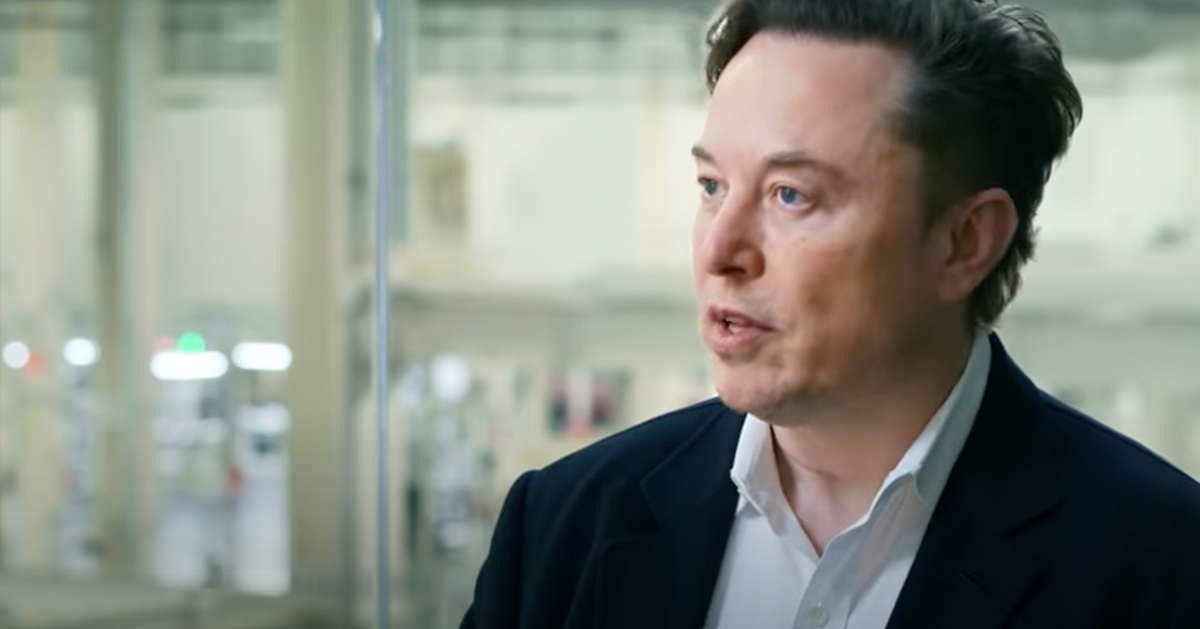FCC examines CBS for potential news distortion in '60 Minutes' edit of Harris interview
The Federal Communications Commission's investigation into CBS's editing practices has drawn significant attention, and the scrutiny stems from allegations of heavy editing of Vice President Kamala Harris's responses during a 60 Minutes interview, leading to disputes over potential election interference and a high-stakes lawsuit.
The controversy began when the FCC decided to investigate CBS after receiving a complaint from the Center for American Rights about the Harris sit-down, with an unedited version released this week, as the New York Post reports.
The complaint alleged that CBS unfairly edited Harris's lengthy explanations regarding Israel into much shorter, more coherent soundbites. This investigation may impact CBS's regulatory standing, particularly regarding Paramount's $8 billion merger with Skydance.
Political, Legal Implications Unfold
The potential implications of the investigation are profound. Former President Donald Trump has filed a $10 billion lawsuit against CBS. The suit accuses the network of manipulating Harris's interview content in a manner that equates to election interference. Both CBS and Trump have already begun preliminary discussions to potentially resolve the matter out of court.
CBS maintains its defense against the allegations, arguing that the edits were standard practice meant for editorial purposes such as time, space, or clarity. An unnamed source from within CBS noted that the edited version of Harris's responses performed a significant favor, presenting her as more direct and succinct.
FCC chair Brendan Carr has been a pivotal figure in bringing the full and edited transcripts to light. Explaining the decision to hold hearings, Carr stated that the investigative process will allow public comment and ensure transparency in reviewing the complaint allegations. The hearings are scheduled for March 7, where public opinions will be considered, further highlighting the democratic aspect of regulatory oversight.
Economic Stakes of Paramount's Planned Merger
The investigation has even broader ramifications, particularly concerning Paramount's ongoing merger with Skydance. Valued at $8 billion, the merger might face delays or obstacles pending the outcome of the FCC's investigation into CBS's practices. Shari Redstone, Paramount's controlling owner, stands to gain a significant financial benefit of $1.75 billion from this deal.
CBS has attempted to assure regulators and the public that the edits made in the 60 Minutes broadcast were neither out of deceit nor subterfuge. According to a source within CBS, the transcripts released support its stance that the edits were not intended to mislead. The network remains committed to defending its editorial decisions.
The lawsuit from Trump, added pressure on Paramount and Shari Redstone amidst ongoing settlement negotiations. An insider suggested that any payout on the lawsuit could be interpreted as yielding to coercion over broadcasting licenses, which CBS obtains from the FCC every eight years.
Public Scrutiny and Regulatory Oversight
The public and legal scrutiny on CBS highlights the delicate balance between editorial discretion and news integrity. The question of whether the edits crossed the line into distortion remains central to the investigation. Voices within the FCC, along with public opinion gathered through the hearings, will be pivotal in determining the outcome.
The controversy also underscores the broader role of media oversight in safeguarding democratic processes. As the landscape of media and technology continues to intertwine, such regulatory inquiries remind stakeholders of the importance of responsible journalism and transparency.
The Center for American Rights played a crucial role in sparking the current investigation. Its complaint led the FCC to consider whether CBS's actions could constitute distortion under their regulatory definitions. Depending on the investigation's findings, the repercussions might influence future editorial practices within the media industry.
Perspective on Harris's Interview Responses
At the heart of the controversy is Harris's interview responses. Described by some as a "word salad," her original, meandering answers presented challenges in broadcasting time-limited segments, according to the network. CBS defended its edits as necessary to fit within their program's format constraints.
However, critics argue that the nature and extent of these edits could mislead viewers, particularly in matters as sensitive as international relations. The decision to significantly shorten these responses has raised questions about CBS's journalistic standards and their impact on public perception.
The upcoming FCC hearings might not only affect CBS but also cast a wider lens on the editorial practices of news agencies across the country. The outcome could signal shifts in how media organizations navigate the fast pace of broadcasting while maintaining integrity and accuracy.
Bigger Picture for Media Accountability
As the situation develops, the case symbolizes broader questions about accountability in journalism and its intersection with technology and regulation. It challenges the media industry to examine its practices, ensuring a fair representation of political figures and events while balancing content demands.
The ramifications for CBS, depending on the FCC's findings, could involve both financial and reputational impacts, influencing future approaches to news editing and presentation. This might also serve as a reminder for news organizations to revisit the protocols that guide their editorial decisions.
Ultimately, the investigation’s proceedings and outcomes could pave the way for strengthened rules overseeing media practices, reflecting an evolving media landscape that demands enhanced accuracy and fairness in reporting.







